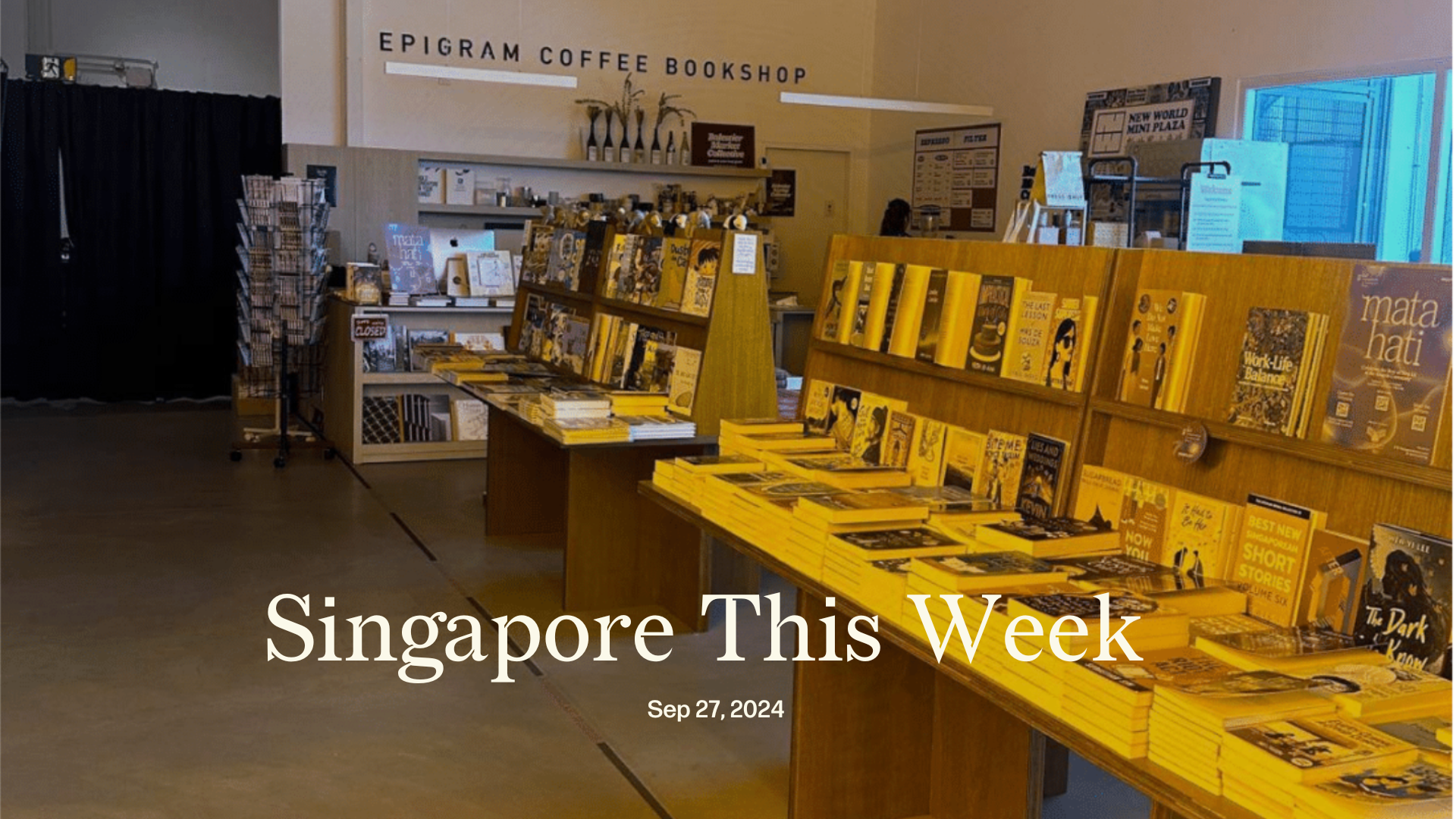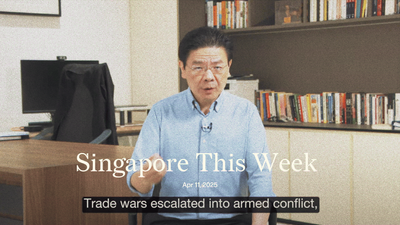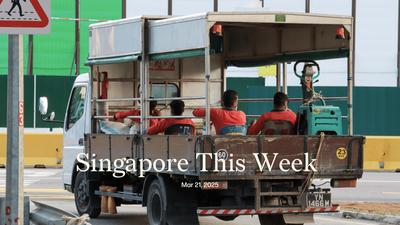Politics: Happy endings for all
Put away the popcorn. The most eagerly anticipated trial of the year ended before it began. S Iswaran, former transport minister with the ruling People’s Action Party (PAP), and the person who spearheaded efforts to bring the Formula 1 (F1) race to Singapore, pleaded guilty to the greatly reduced charges of obtaining gifts as a public servant and obstructing justice. The gifts included private jet flights from Ong Beng Seng, Singapore’s corporate lead on the F1 enterprise; and Gordon & MacPhail Caol Ila whisky from Lum Kok Seng, whose construction firm had been awarded contracts by the Land Transport Authority. The Attorney General’s Chambers (AGC) withdrew its original corruption charges in what appears to be a plea bargain, citing the challenges in proving them beyond a reasonable doubt. In response some, including lawyer Yeoh Lian Chuan, have wondered if Section 8 of the Prevention of Corruption Act 1960—where there’s a presumption of corruption with such gratifications involving public servants, unless the contrary is proved—applied to Iswaran.
In any case, Singaporeans who were looking forward to a fierce fight featuring the ferocious Davinder Singh, Iswaran’s lawyer, ultimately got only a heated debate about whether he should be put away for weeks or months. (He’ll be sentenced next week.) The propaganda machine will portray this case, like the “Fujian gang” money laundering one, as evidence of the system’s incorruptibility—the more we uncover, the better we actually are, apparently. The very public, almost theatrical, way the entire saga has played out is both a display of state power and a claim to party purity. Ahead of his first general election as prime minister, Lawrence Wong should be happy. Now that the corruption charge is off the table, Ong should be happy. For the quick resolution, the AGC should be happy. For having again proved his worth to his clients, Singh should be happy.
And what about Iswaran? Yes, his political career is over, he’ll go to jail for a bit, and he’s had to cough up some money: a voluntary disgorgement of S$380,305.95 (his supposed gains), legal fees and any other costs. But that’s probably a pittance compared to his presumed wealth: he was first appointed minister of state in 2006. All things considered, even he should be happy. Next up in October: the trial of Pritam Singh, leader of the opposition, accused of lying to a parliamentary committee. Will he also emerge happy?
Society: The stress and anxiety of being young in Singapore
Initial findings from the Institute of Mental Health (IMH) National Youth Mental Health Study (NYMHS) are out, and while concerning, aren’t surprising. They confirm what other surveys have found in recent years; that with the rise in mental health issues among Singapore’s young, more are suffering from symptoms of depression, as well as overwhelming feelings of anxiety and stress. “It’s a worrying trend, and we are taking it seriously,” Wong, then deputy prime minister, said in February. The NYMHS is IMH’s first nationwide study and was conducted in collaboration with the Ministry of Health, the National University of Singapore, and others. It surveyed some 2,600 respondents aged 15-35 years between October 2022 and June 2023, which involved face-to-face interviews and questionnaires on participants’ sociodemographic backgrounds, mental health and well-being, general personal feelings, experiences in schools or workplaces, social support, and lifestyles.
It found that about one in three respondents (30.6 percent) reported experiencing severe or extremely severe symptoms of depression, anxiety and/or stress. (Although this doesn’t necessarily indicate a clinical condition.) Meanwhile, 14.9 percent reported depression in the week before the survey, which includes feeling sad, empty and a lack of interest and pleasure in activities most of the time. Anxiety was the most common mental health problem among Singapore youth, with 27 percent saying they had severe or extremely severe symptoms of anxiety in the week before the survey, including feeling worried, tense and restless most of the time. About 12.9 percent said the same about stress, whose symptoms include being unable to relax or being upset or irritable most of the time. Contributing factors for all these include cyberbullying, excessive social media usage (more than three hours daily), body image concerns, adverse childhood experiences, as well as the treatment gap and sources of support here. What’s maybe reassuring is that 69.1 percent reported having severe or extremely severe mental health symptoms did find help, most commonly from family and friends, self-help measures and resources and medical services. Those who didn’t cited three main reasons: that specialists wouldn’t be able to help them; being worried about others’ perceptions; and concerns about privacy, confidentiality or being stuck with a permanent record.
These findings will likely contribute to developing and improving youth services here, while further informing the National Mental Health and Well-Being Strategy launched last October. “Early identification of issues and intervention support can help to prevent those at risk from developing mental illnesses,” said Swapna Verma, IMH’s Medical Board chairman and the study’s co-principal investigator.
Some further reading: in “Mental health: my journey and our life’s foundation”, Tsen-Waye Tay confronts her own mental health issues, tracing them back to her youth.
Society: Where are you from?
Discrimination at the workplace in Singapore has declined for another year with fewer resident employees and job seekers experiencing unfair practices in 2023. According to the latest fair employment practices report from the Manpower Ministry (MOM), the share of employees who reported being discriminated against dropped from 8.2 percent in 2022 to 6.0 percent last year. And for those looking for a job, the figure fell from 23.8 percent to 23.4 percent. MOM has attributed the improvements in overall workplace fairness standards to collective efforts by the government, employers, workers and unions in “ensuring a fair work environment” for everyone. Age was the most common form of discrimination, followed by race, nationality and mental health. Employees treated unfairly due to their mental health saw the largest dip, from 4.7 to 1.6 percent, which MOM said could be due to increased publicity and awareness of mental health. Bucking the overall downward trend, however, was more job seekers feeling that they were discriminated against due to how old they were and where they were born.
Other data released: more employees—63.2 percent compared to 59.8 percent the previous year—worked in companies that have implemented formal procedures to tackle workplace discrimination. But despite having more avenues to take their bosses to task, fewer employees who experienced discrimination reached out for help at work—a drop from 35.3 percent in 2022 to 29.5 percent last year, meaning that seven in 10 workers affected chose to remain silent. Ang Boon Heng, director of MOM’s manpower research and statistics department, said that the new Workplace Fairness Legislation will protect those who do come forward with a complaint.
The upcoming Workplace Fairness Legislation will legally require companies not to discriminate against employees based on age, nationality, sex, marital status, pregnancy status, race and disability. Although widely welcomed, it’s been criticised for excluding prohibitions against discrimination based on sexual orientation, gender identity and gender expression. Their omission from MOM’s report is itself perhaps a form of discrimination?
Some further reading: in “Will Singapore’s new workplace discrimination law be a win for equality?”, lawyer Daryl Yang argues that the current anti-discrimination framework is based on a concept of fairness that is insufficiently robust.
Society: Legal troubles
For a few years now, Singapore’s legal fraternity has been fretting over young lawyers fleeing the profession. In 2022, the late Adrian Tan, then president of the Law Society of Singapore, revealed that more than 500 had quit the previous year. Reasons ranged from an always-on culture, toxic workplaces and the feeling that they are mere cogs in a relentless wheel. “While young lawyers work hard,” Tan had said, “they also want to have a life outside their profession.”
Last week, Sundaresh Menon, chief justice, addressed the exodus, against the backdrop of a new survey indicating that two-thirds of the 234 young lawyers polled were likely to move out of legal practice in the next five years; over a third could leave the profession altogether. Menon spoke of the need for “…mutual trust between law firms and their employees, with due regard for the wellbeing of our junior colleagues while recognising that this need not impede effective performance.” He felt too that junior lawyers must be more cognisant of the hard work that goes into building a legal career.
It may not merely be a question of hard work but that of hard work yoked to a purpose. For instance, Pro Bono SG, a legal charity, is seeing an increase in younger lawyers interested in doing work that feels more meaningful. “We’re looking at a generation of lawyers…[who] are genuinely asking themselves important questions about where they’re going and what their purpose is…,” said Sadhana Rai, who does criminal defence work at the charity. Pro Bono SG helps those who’re not fluent in English, have little digital literacy, and/or are unable to afford lawyers.
Interestingly, Menon himself highlighted the need for better access to justice. In recent years, local courts have been simplifying procedures for certain types of cases so that those representing themselves—an increasingly common occurrence—don’t get lost in legalese. Yet, given that Pro Bono SG has dealt with almost 800 cases since last year, it’s clear that plenty more needs to be done. The charity is funded by government grants, foundations and other benefactors. Perhaps one way to staunch the flow of lawyers headed for the exit is to support more such organisations where the results of one’s hard work don’t just benefit the bottom line.
Some further reading: in “Suhaimi Zainul-Abidin’s appeal to all”, the boss of Quantedge, a hedge fund, talks about his punishing 80-hour, six-day workweeks as a young lawyer, and about current efforts to ensure work-life balance at his firm.
History Weekly by Faris Joraimi
The Genealogy Society of Singapore (GSS) recently donated eight genealogy books to the National Library Board (NLB), including traditional Chinese genealogical volumes called 祖谱 (zu pu) or 家谱 (jia pu). These record the family relationships between male members of the same clan, who share a common surname, and can go deep into the past. Last year, Jom published an essay on the Pang genealogy book, which stretches back 600 years. Chung Kwang Tong, a Singaporean who managed to track down his genealogy book in Hainan, found out he has a Song dynasty (960-1279 AD) ancestor. Such records are impressive human achievements, and there were practical reasons for producing and updating them. For the Chinese, membership in a clan provided support and protection as you left your ancestral village for the Nanyang. Some prominent Arab families in South-east Asia descended from the Prophet Muhammad, narrating genealogies to protect such claims’ legitimacy, as they provided religious and political prestige. Malay historical sagas, called silsilah and hikayat, were essentially stories of important ruling families. While different in form, they were all concerned with the distribution of resources and access to networks and opportunities.
The GSS’s donation follows an agreement signed with the NLB to support public interest in genealogy through talks, workshops and exhibitions. The GSS launched in 2012 with a mission to “promote the advancement of our multi-racial, cross-cultural heritage, customs and traditions”, partly by creating a platform for genealogy enthusiasts and researchers to collaborate. Meanwhile, the NLB itself has rich resources and guides for researching family history, such as birth and burial records, legal petitions, wills, and other documents, including accounts authored by individuals. Journey to the Straits – The Shepherdson Story (2003) by Percival Shepherdson recounts three centuries of a Eurasian family’s roots, beginning with an 18th-century emigrant from the British isles.
Curiosity can be big business. Home kits for DNA heritage tests are a multi-billion-dollar industry, though results can be a mix of wonder and confusion. Since when were we Irish? How can we be 55 percent Vietnamese? Can you claim this unfamiliar origin? Is one’s “race” or “ethnicity” down to percentages? Still, there’s a magic to the way our bodies carry—at the cellular level—memories of migrations, partnerships, homes left behind and made anew. Do they get us any closer to our past? In the 1999 play “Mnemonic” by Simon McBurney, where a long-lost father is just as elusive as a 5,000 year-old mummy, a character wonders if anything we know about our forebears is accurate: “How can we possibly know? It’s just one theory. A story. It’s one way of going there, isn’t it? A story. We need stories.”
Arts: An epilogue for Epigram
It’s curtains for yet another brick-and-mortar bookstore here. The most recent victim of soaring rent and low footfall is the Epigram Coffee Bookshop, currently nestled in a nook of the Singapore Art Museum’s premises at the Tanjong Pagar Distripark. The 20-seater concept will shut its doors in January. The publisher revealed the store’s impending closure just days after Times Bookstore announced that it, too, was shuttering its last outlet, in Holland Road. “We had to close our first bookshop during the pandemic, which was a difficult but understandable decision given the circumstances,” said Edmund Wee, founder of Epigram Books. “This time, however, the closure feels more frustrating. It’s not the pandemic—we just don’t have anywhere else to go.” Opening a bookstore in the cargo complex-turned-art cluster—which also hosts the annual Singapore Art Book Fair—may have made sense in the post-pandemic arts revival. But, as the publisher soon discovered, “once the exhibition leaves, so do the crowds”. Unless rents soften, it’s unlikely that Epigram Books will seek out another in-person spot. (Its online shop will remain open.)
Epigram Books has long been one of the big champions of local literature, affectionately abbreviated as SingLit. Among the publisher’s 400-plus titles is the multi-award-winning graphic novel The Art of Charlie Chan Hock Chye by Sonny Liew; it also sponsors one of the most lucrative literary prizes in Singapore, with a $25,000 pot for the winner. It is currently fundraising to keep the prize going. Wee himself is undergoing treatment for Stage 3 prostate cancer, he recently told The Straits Times, but that hasn’t dampened his determination to keep his corner of the independent literary scene going. “If we really want to make a difference, it must be a book,” he told his staff. “If you publish a great book, it lives on forever.”
Tech: Beam in trouble Down Under
Beam Mobility, a Singapore-based e-scooter-sharing company has been accused of defrauding town councils in Australia and New Zealand by duping tracking systems to deploy more e-scooters than allowed. Beam’s contracts have been cancelled, with some councils reporting the firm to the authorities.
Beam’s prominent backers include Momentum Ventures and EDBI, the investment arms, respectively, of SMRT and EDB. Neither has board seats though, and will likely write off their investments should the company go south. Investors like Peak XV partners and Affirma Capital, that do sit on the board, may need to prove they adequately discharged their fiduciary duties and conducted proper due diligence. This could be particularly damaging for Peak XV, given their previous entanglements with controversial ventures like Zilingo and GoMechanic. The incident highlights the challenges of due diligence in start-up investments, which typically involves a shorter, more focused process compared to public offerings.
Tech: Economic squall blows away Deliveroo’s cloud kitchens
Not too long ago, cloud kitchens were all the hype for restaurant-tech. Yet, Deliveroo’s decision to close its cloud kitchen operations in Singapore reflects the changing post-pandemic economic landscape. The company cited rising operating costs, particularly rent and utilities, as well as reduced expansion plans from restaurant partners due to food inflation and wage increases.
The closure of the two remaining Editions sites in Singapore marks the end of an ambitious project that began with much optimism in 2019. The Alice@Mediapolis location, once touted as Deliveroo’s “biggest and most innovative site,” featured advanced technologies like self-serve kiosks and digital cubbies. However, the concept failed to achieve long-term profitability. This trend aligns with the broader food delivery market in South-east Asia, which has stagnated since the pandemic’s peak. Deliveroo’s struggles in Singapore reflect these challenges, with profits and revenue declining in 2023 compared to the previous year. However, the company became profitable in the first half of 2024 for the first time globally since its founding in 2013. This suggests that while specific markets like Singapore may be lagging, the company is focusing on more profitable areas and streamlining operations. The closure of cloud kitchens here appears to be part of this broader restructuring effort.
If you enjoy Jom’s work, do get a paid subscription today to support independent journalism in Singapore.






